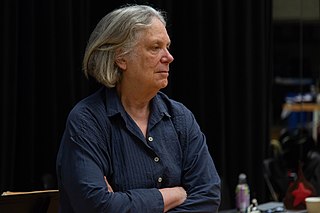A Quote by Richard Asher
The modern haematologist, instead of describing in English what he can see, prefers to describe in Greek what he can’t.
Related Quotes
If a little less time was devoted to the translation of letters by Julius Caesar describing Britain 2000 years ago and a little more time was spent on teaching children how to describe (in simple modern English) the method whereby ethylene was converted into polythene in 1933 in the ICI laboratories at Northwich, and to discussing the enormous social changes which have resulted from this discovery, then I believe that we should be training future leaders in this country to face the world of tomorrow far more effectively than we are at the present time.
Had there been no Renaissance and no Italian influence to bring in the stories of other lands English history would, it may be, have become as important to the English imagination as the Greek Myths to the Greek imagination; and many plays by many poets would have woven it into a single story whose contours, vast as those of Greek myth, would have made living men and women seem like swallows building their nests under the architrave of some Temple of the Giants.
I suppose there is no place in the world where snobbery is quite so ever-present or where it is cultivated in such refined and subtle forms as in an English public school. Here at least one cannot say that English ‘education’ fails to do its job. You forget your Latin and Greek within a few months of leaving school — I studied Greek for eight or ten years, and now, at thirty-three, I cannot even repeat the Greek alphabet — but your snobbishness, unless you persistently root it out like the bindweed it is, sticks by you till your grave.
For the most profound experiences in our lives and in the world words are worth nothing. Can you describe love Or death Can you describe what it really feels like the first time you see your child Or the first time your heart gets broken You can try...but it won't come close to describing what it really was or what it really felt like.
I use a lot of similes and metaphors when I work, simply because it's my best way of describing a building or a scene. I'm terrible at describing landscapes - trees, buildings. The inanimate things don't interest me: I always think, "Oh, no, here comes another building I have to describe." So I usually use a simile or metaphor.
I wish they would use English instead of Greek words. When I want to know why a leaf is green, they tell me it is coloured by "chlorophyll," which at first sounds very instructive; but if they would only say plainly that a leaf is coloured green by a thing which is called "green leaf," we should see more precisely how far we had got.




































